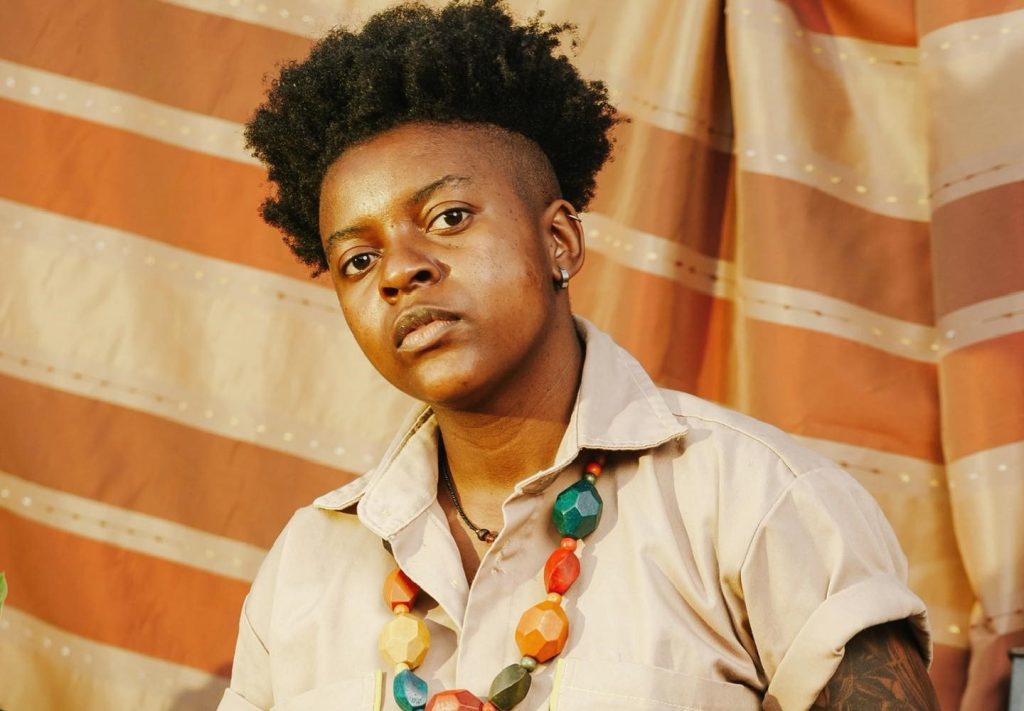Ellen Chilemba: Founder of Tiwale Community-Based Organisation
The music industry, especially deejaying, has been male-dominated.
Female DJs may face stereotypes and gender bias, with some people assuming that women aren’t as skilled or knowledgeable in the field.

And looking back, one could not be taken seriously when venturing into as a career.
Ellen Chilemba, well known by her stage name DJ Chmba, is a dynamic young woman breaking barriers as an international DJ sensation.
Amidst her electrifying performances, her journey takes on a philanthropic twist as she established an organisation called Tiwale Community-Based Organisation (CBO) dedicated to empowering rural girls’ education.
Through her foundation, she amplifies their voices, providing opportunities for education and personal development.
In this 21st Century narrative, Chilemba proves that success extends beyond personal achievements; it’s about uplifting others and leaving a lasting impact on communities around the world.
She narrated: “Tiwale means, ‘let us shine or glow’ in Chichewa. We are a youth-founded and led CBO in Mtsiliza, Lilongwe. It supports women, girls and non-binary people through educational, entrepreneurial and economical opportunities.”
Tiwale was launched with a team of five young people between ages 14 and 19 years old in 2012.
Ellen said the organisation’s initial focus was a business workshop that was to be followed by micro-loans.
This enabled 40 women to start businesses.
It then diversified to vocational skills training, offering fashion design, sewing and tie-dye workshops engaging 66 more women.
The products made in these programmes enabled the organisation to buy land and build a community centre, offering after-school homework support, a library, music tech education, Science, Technology, Engineering and mathematics; and a learning centre.
Tiwale also offers education grants.
Since 2012, Tiwale has supported 376 women and girls and reached over 20 000 youths in workshops and digital campaigns.
Born in Blantyre, DJ Chmba grew up in Lilongwe and got a scholarship to study for a diploma in African studies, leadership, entrepreneurship and Cambridge A levels in South Africa.
She then got another scholarship to study economics and studio in the US.
After her economics degree, she got her first job.
While working, Ellen realised she was unfulfilled. At 23, she decided to get more serious about her musical dreams.
She hinted that music is her world and she is a music producer mostly before deejaying.
The DJ finds joy in giving back to her community through her initiative.
Deejaying for women was operated in the shadows and only few individuals appreciated the craft.
Fast forward to the 21st Century, tables have turned and they are now celebrated for their impact in shaping cultural trends.
In the vibrant world of music, she seamlessly blends beats and cultures, captivating audiences globally.
“While being a female DJ may come with its share of challenges, it also provides a platform for breaking barriers, inspiring others and contributing to positive changes.
“The digital age has not just changed the rules; it has rewritten the entire playbook, turning DJing into a real game with global impact,” she beamed.
Ellen smiled as she shared the meaning of her stage name, saying Chmba is a short form of her surname Chilemba and also toys with concept of music genre in Chichewa which would be a chamba.
“I started flirting with music when I was young and I started toying with songs making cassette mixes when I was as young as 7 years old.
“In my teens, I mixed songs on CDs for friends. I was eventually gifted by my friends a DJ controller when I was 18,” she said.
According to the star, deejaying is always a blessing to be in tune with many people who bring joy and memories through music.
“When I see beautiful smiles and moves on the dance floor, I feel elevated and I am grateful and blessed to do it,” she said.
Ellen said her career has been a series of small steps with momentous moments such as playing at Women Deliver, LiFest, World Economic Forum, playing Madonna’s Oscars Party in the US and getting signed with Platoon.
She said:” I am at the very start of where I want to be so much work to do, so much to build. I am also not trying to take on a solo journey; I want women who dream of mixing or producing to also access these spaces. I want more Malawians dominating culture and I feel I have a foot in, but I’m not stepping in alone.”
Months ago, the young woman, who is currently in the US, released an extended play (EP) in which she described the project as her sophomore EP that she hopes it reflects her growth from her initial release Mtima Rising in 2020.
“My recent EP is Okongola Caucus, which could translate to, ‘a gathering of beauty’ or ‘a meeting of beauty.’”
“It is an exploration of love in all its forms— from romance to parental, then the pleasure in a love untangling, free form in feeling and finding vulnerability,” she said.
The EP includes songs, Patali, Nitemwe, Dzuwa. These all sit in a fusion of afro-centric sounds and genres, meeting electronic and house feels to create a new form of sonic beauty.
One of her achievements is to be signed by a major label, Platoon that has artists such as Jorja Smith, Ayra Starr, Mr Eazi and Amaarae.
Ellen played for an audience, including Ciara, Celine Dionne and Kid Cudi, Diplo at Madonna’s Oscars Party.
“I have travelled to many places because of music, including Spain which was beautiful experience to witness the country and to be so close to Ibiza,” she said.
Ellen admitted to be in love with music and wishes she would have started earlier, practiced more and pitched more.
The DJ said she is still building herself and there’s so much to learn.






One Comment